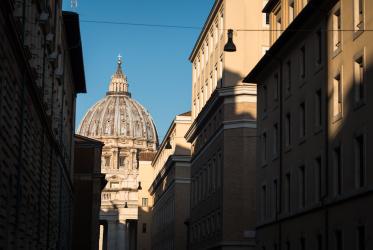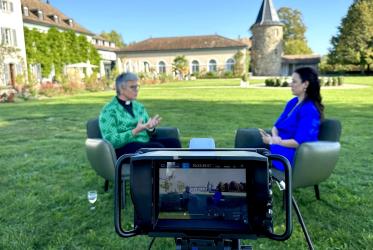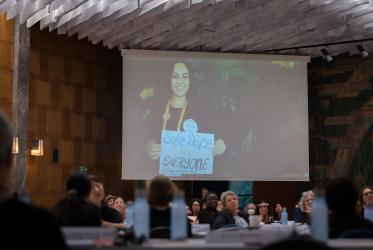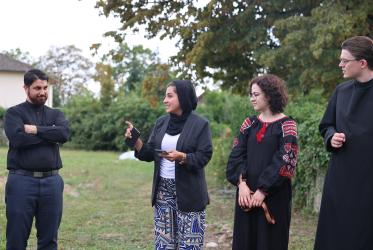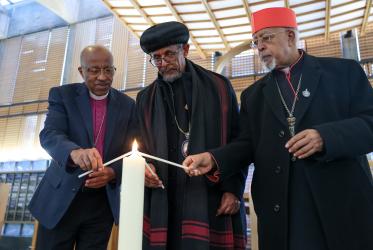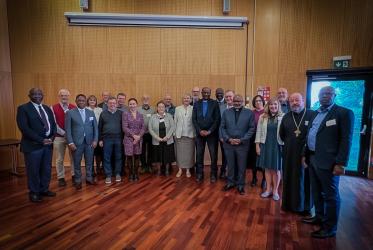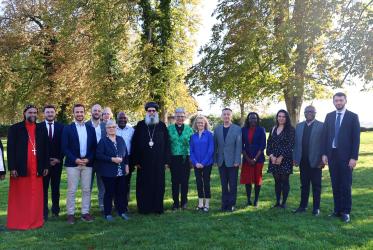Displaying 1 - 20 of 349
23 April 2024
New WCC appointments reflect strong global fellowship
10 April 2024
Applications open for Bossey interfaith summer course
11 January 2024
WCC hosts Conference of Secretaries of Christian World Communions
06 November 2023
WCC, Global Christian Forum joyfully map future work
06 November 2023
Global Christian Forum convening at Ecumenical Institute at Bossey
02 November 2023
Thirty days that changed the ecumenical movement
23 October 2023





